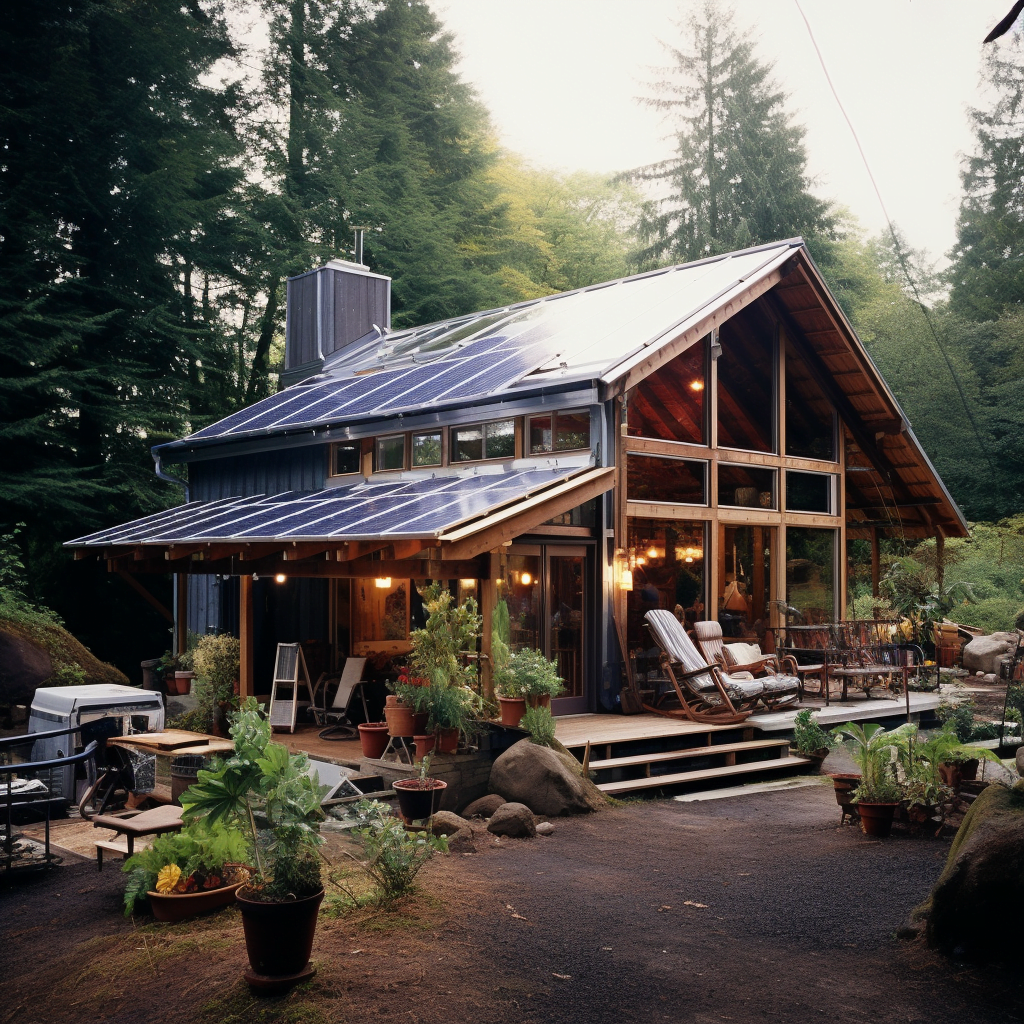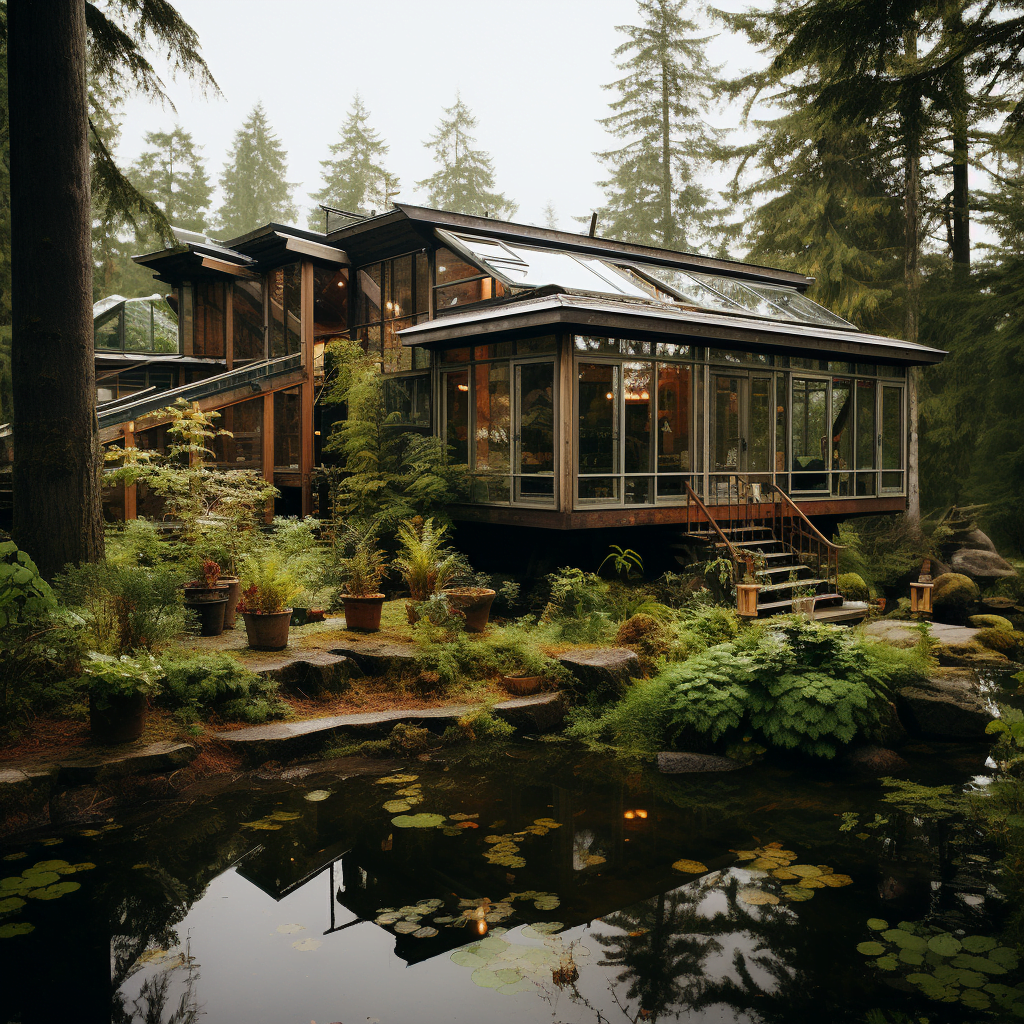Introduction
Many are curious if off-grid living is legal. Can you live disconnected from the power grid without repercussions? It depends on your local laws and regulations.
Living off-grid means generating your own electricity, collecting water, and relying on sustainable practices for day-to-day life. Although eco-friendly, this lifestyle can conflict with building codes and zoning regulations.
These regulations are put in place to protect public health and safety. So, if one chooses to go off-grid without meeting these requirements, they may face legal challenges. Aspiring off-grid homeowners must research local laws before starting their journey.
Regulations vary from jurisdiction to jurisdiction. Some areas even have policies or incentives to support off-grid living. Certain states offer tax credits for installing renewable energy systems or exemptions from building codes for eco-friendly construction methods.
Tip: Before going off-grid, talk to local authorities or hire experts in sustainable living practices. This way you can stay legal while enjoying a fulfilling off-grid experience. So, let’s go!
Understanding Off Grid Living
Living off the grid is a lifestyle where people generate their own electricity and provide their own water supply. It’s done by using renewable energy sources such as solar power, wind turbines, and rainwater harvesting.
Some aspects of off-grid living include:
- Availability of power generation with solar panels and wind turbines
- Water supply with rainwater harvesting, wells, and natural springs
- Heating with biomass stoves and solar thermal heating systems
- Waste management with composting toilets and greywater recycling systems
- Food production with organic gardening and aquaponics
This is not just a trend, but a conscious choice for many who want to be sustainable and preserve the environment. By switching to these kinds of energy sources and resources, people can reduce their carbon footprint and still have modern comforts.
The National Renewable Energy Laboratory (NREL) states that off-grid homes can significantly decrease greenhouse gases.
Legal Considerations for Off Grid Homes: Regulations don’t always apply when you’re living off the grid.
Legal Considerations for Off Grid Homes
Living off the grid is a popular choice for those desiring independence from traditional utility systems. Before getting started, consider five key legal points:
- Building permits: Make sure you have all necessary permits and approvals before constructing your off-grid home. Otherwise, you may face fines or even demolition of your property.
- Property zoning regulations: Check local zoning regulations to make sure your off-grid home complies with the designated land use. Not following these rules could lead to legal consequences.
- Water rights: Accessing water in off-grid homes may be difficult since many areas have laws regulating water usage and rights. Research and understand these regulations in your area.
- Septic system requirements: Waste disposal is vital when living off the grid. Ensure your septic system meets all relevant health and environmental guidelines set by local authorities.
- Renewable energy incentives: You may be eligible for tax credits or grants for installing renewable energy systems. Take advantage of these incentives to make your sustainable lifestyle more affordable.
Look into local regulations further, as some communities may impose limits on the size or style of off-grid homes or require certain materials or construction techniques. Begin researching legal considerations for off-grid homes now and take the necessary steps towards a more independent future. Your dream of living off the grid is within reach – make it happen!

Case Studies of Off Grid Homes
Case studies of off-grid homes are real-life examples of individuals or communities who live self-sufficiently, disconnected from traditional utility systems. Let’s take a look at a visually appealing table filled with fascinating examples!
| Case Study | Location |
|---|---|
| EcoVillage | Oregon, USA |
| Earthship | New Mexico, USA |
| Jupiter House | Costa Rica |
| The Ark | Australia |
EcoVillage in Oregon is renowned for its sustainable practices and community-focused approach. Earthship in New Mexico implements innovative architecture with recycled materials. Jupiter House in Costa Rica has solar panels and rainwater harvesting systems. The Ark in Australia is a self-sustained home with energy-efficient tech.
Michael Reynolds’ Earthship Biotecture in the 1970s was a revolutionary step in sustainable housing design. It addressed societal needs and minimized environmental impact.
These case studies give insight into the technical, economic, social and environmental aspects of off-grid living. There are complexities, but they may inspire imaginative solutions. However, the legal process for off-grid homes can be frustrating.
Navigating the Legal Process
Before living off-grid, assess the laws in your region. To avoid complications, research permits and zoning regulations. Those areas with stricter rules may prohibit off-grid homes.
Take Jane’s example. She wanted a renewable energy-powered home. But her area had strict rules against it. She became an advocate and made changes to the outdated laws.
Conclusion
The study of off-grid homes’ legality leads to some interesting discoveries. These dwellings, which exist without public utilities, are lawful in many places. Yet, the rules and regulations differ based on the locale.
To understand this concept better, it is plain to see that off-grid homeowners must work around a complex set of laws. The legality of these homes often depends on land use zoning, building codes, and environmental policies. For example, some regions may require permits or examinations to guarantee adherence with safety measures and resource management.
Something to ponder is the increasing trend of off-grid living. As people become more aware of sustainability and independence, governments and communities are beginning to recognize the advantages and potential of these homes. In some areas, incentives are being initiated to motivate people to practice eco-friendly habits by going off-grid.
Still, it is important to note that each jurisdiction has its own set of rules and considerations when it comes to off-grid housing. Although they are lawful in many places, those interested in off-grid living should investigate local regulations before taking on the alternative lifestyle.
In an article called “Are Off Grid Homes Legal? Explained” by Sustainable Baby Steps, it is essential for potential off-grid homeowners to seek proper legal advice concerning their area’s laws and regulations.




